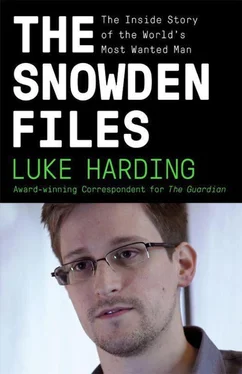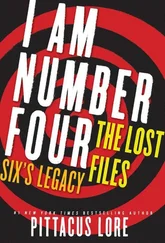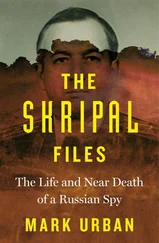The following day Kucherena visited again, and put together Snowden’s application to Russia’s migration service for temporary asylum. Suddenly, Kucherena was taking the role of Snowden’s public advocate, his channel to the world. ‘Right now he wants to stay in Russia. He has options. He has friends and a lot of supporters… I think everything will be OK,’ he told reporters.
It’s unclear why Snowden reached out to Kucherena. But the defence lawyer had connections in all the right places. A Kremlin loyalist, he publicly supported Putin’s 2011 campaign to return as president. Bulky, grey-haired, bonhomous, the 52-year-old Kucherena was used to dealing with celebrities. (He had represented several Russian stars including the Kremlin-friendly film director Nikita Mikhalkov.)
But as well as high-society contacts, Kucherena has other useful connections. He is a member of the FSB’s ‘public chamber’, a body Putin created in 2006. The council’s mission is nebulous, given that it involves a spy agency: it is to ‘develop a relationship’ between the security service and the public. The FSB’s then director Nikolai Patrushev approved Kucherena’s job; he is one of fifteen members. Fellow lawyers say he is not an FSB agent as such. Rather, they suggest, he is a ‘person of the system’.
Few, then, believe Kucherena is an independent player. He was one of very few people allowed to visit Snowden. During his trips to the airport he brought gifts. They included a Lonely Planet guide to Russia, and a guide to Moscow. The lawyer also selected several classics ‘to help Snowden understand the mentality of the Russian people’: Fyodor Dostoyevsky’s Crime and Punishment , a collection of stories by Anton Chekhov, and writings by the historian Nikolai Karamzin. Snowden quickly polished off Crime and Punishment . After reading selections from Karamzin, a 19th-century writer who penned the first comprehensive history of the Russian state, he asked for the author’s complete works. Kucherena also gave him a book on the Cyrillic alphabet to help him learn Russian, and brought a change of clothes.
Snowden was not able to go outside – ‘he breathes disgusting air, the air of the airport,’ Kucherena said – but remained in good health. Nonetheless, the psychological pressure of the waiting game took its toll. ‘It’s hard for him, when he’s always in a state of expectation,’ Kucherena said. ‘On the inside, Edward is absolutely independent; he absolutely follows his convictions. As for the reaction, he is convinced and genuinely believes he did it first of all so the Americans and all people would find out they were spying on us.’
As soon as Snowden arrived in Russia, one question began to be asked with increasing intensity: had the Russians got hold of Snowden’s NSA documents? On 24 June, the New York Times quoted ‘two western intelligence experts’ who ‘worked for major government spy agencies’. Without offering any evidence, the experts said they believed that the Chinese government had managed to drain the contents of the four laptops Snowden brought to Hong Kong.
Snowden categorically denies these media claims, which spread rapidly. He also insists he has not shared any NSA material with Moscow. ‘I never gave any information to either government and they never took anything from my laptops,’ Snowden told Greenwald in July in two interviews. Greenwald would furiously defend Snowden against the charge.
Snowden was extremely good at digital self-defence. When he was employed by the CIA and NSA one of his jobs was to teach US national security officials and CIA employees how to protect their data in high-threat digital environments. He taught classes at the Defense Intelligence Agency (DIA), which provides top-grade foreign military intelligence to the US Department of Defense. Paradoxically, Snowden now found himself in precisely the kind of hostile environment he had lectured on, surrounded by agents from a foreign intelligence agency.
Snowden corresponded about this with Gordon Humphrey, a former two-term Republican senator from New Hampshire. In a letter to ‘Mr Snowden’, Humphrey wrote: ‘Provided you have not leaked information that would put in harm’s way any intelligence agent, I believe you have done the right thing in exposing what I regard as a massive violation of the United States constitution.’ (Humphrey also called Snowden a ‘courageous whistleblower’ who had unearthed the ‘growing arrogance of our government’.)
Snowden’s reply is worth quoting in full:
Mr Humphrey
Thank you for your words of support. I only wish more of our lawmakers shared your principles – the actions I’ve taken would not have been necessary.
The media has distorted my actions and intentions to distract from the substance of constitutional violations and instead focus on personalities. It seems they believe every modern narrative requires a bad guy. Perhaps it does. Perhaps in such times, loving one’s country means being hated by its government.
If history proves that be so, I will not shy from that hatred. I will not hesitate to wear those charges of villainy for the rest of my life as a civic duty, allowing those governing few who dared not do so themselves to use me as an excuse to right these wrongs.
My intention, which I outlined when this began, is to inform the public as to that which is done in their name and that which is done against them. I remain committed to that. Though reporters and officials may never believe it, I have not provided any information that would harm our people – agent or not – and I have no intention of doing so.
Further, no intelligence service – not even our own – has the capacity to compromise the secrets I continue to protect. While it has not been reported in the media, one of my specialisations was to teach our people at DIA how to keep such information from being compromised even in the highest-threat counter-intelligence environments (i.e. China).
You may rest easy knowing I cannot be coerced into revealing that information, even under torture.
With my thanks for your service to the nation we both love, Edward Snowden
The letter set out cardinal Snowdon themes: love of country, civic duty, a desire to protect the constitution. Its tone was high-minded and in parts melodramatic: ‘If history proves that to be so, I will not shy…’ But it left no doubt that Snowden was aware of the peril from hostile foreign intelligence agencies, and that he had taken extreme steps to keep his material safe.
Barton Gellman of the Washington Post , one of Snowden’s few early interlocutors, says that he believes Snowden had put the data beyond reach. ‘I think he rendered himself incapable of opening the archive while he is in Russia,’ Gellman told US radio network NPR. He added: ‘It isn’t that he doesn’t have the key any more. It’s that there is nothing to open any more. He rendered the encryption information impossible to open while he is in Russia.’
But none of this, of course, meant the Kremlin was uninterested in the contents of Snowden’s laptops. The FSB was adept at electronic surveillance. Like its KGB predecessor, its procedures involved bugging, hidden video cameras and entrapment. Unlike the NSA, the FSB also used what might be called ‘suspicion-ful’ surveillance. With western intelligence agencies, the idea was to monitor a target without him or her ever knowing about it. The FSB, by contrast, also engaged in ‘demonstrativnaya slezhka’ , demonstrative pursuit.
Using tactics perfected by the 1970s Stasi, East Germany’s secret police, the FSB would break into the homes of so-called enemies. Typically these were western diplomats and some foreign journalists. But the FSB also played a leading role in the suppression of internal dissent, and targeted Russians too, including those working for US or British embassies. A team of agents would break into a target’s flat. They would leave clues that they had been there – open windows, central heating disconnected, mysterious alarms, phones taken off the hook, sex manuals by the side of the bed.
Читать дальше












